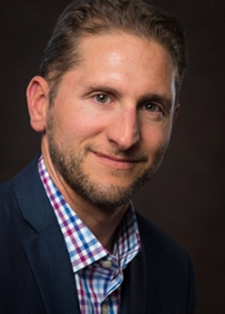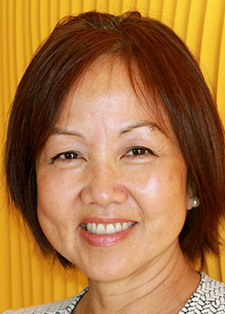UC San Diego Research Awarded $3.8 Million for Critical, Innovative Work
Campus research part of larger $17M grants from University of California Office of the President
Published Date
Article Content
New election laws have the potential to make the state’s voters the largest, most diverse electorate yet, but will they? Refugee resettlement is a pressing issue, and California has welcomed hundreds of thousands of refugees over time without truly understanding their stories. And hospitals are already using some form of magnetic imaging, but developing the next generation of instruments — higher resolution, more defined accuracy — could help patients everywhere.
University of California San Diego researchers are leading three separate research projects to explore these issues, each involving faculty from across the UC system. A total of $3.79 million in grants from the University of California Multicampus Research and Programs Initiatives has been awarded to fund the work.
These interdisciplinary projects, among 15 total the University of California is funding in 2017, “advance research in areas of critical importance to California and the world,” said Arthur Ellis, UC’s vice president for Research and Graduate Studies. “These projects illustrate how UC can leverage its collective excellence to develop solutions for real-world problems.”
The complete grants, totaling over $17 million, were announced in early December. The winning research projects were selected by peer review from a pool of 97 applications in a highly competitive grant review process. The funded portfolio spans the breadth of university scholarship, including arts and humanities, health, social and physical sciences, and engineering.
The UC San Diego projects are:
Will California’s New Electorate Reflect the new California? ($545,000)

Thad Kousser
Thad Kousser, chair of the Department of Political Science, is leading a project organized by the UC San Diego Center for Tomorrow’s California to look at three trends in the politics of the state: an increasingly diverse population, historically low voter turnout and a series of pioneering election reforms.
It’s the new set of election laws, Kousser said, that have the potential to both expand California’s electorate and make it more reflective of the state overall. However, the researchers are looking to discover if the new laws could instead make voter inequality worse.
By leveraging the University of California’s presence in state government through the UC Center Sacramento, this project will bring professors from San Diego, Merced, Riverside, Berkeley and Davis together with state lawmakers in order to design studies of who turns out under the new laws, and to implement large-scale field experiments testing new strategies to increase and broaden participation in California elections.
Critical Refugee Studies ($1.6 million)

Yen Le Espiritu
Led by Department of Ethnic Studies professor Yen Le Espiritu, this project will bring cultural studies and humanities scholars together to better understand one of the defining issues of the 21st century: the refugee experience in both past and present, as war and climate change continue to displace millions of people around the world.
Espiritu, who is credited with developing the nascent field of critical refugee studies, will work with faculty from Berkeley, Merced, UCLA and Riverside to document how the lives of distinct waves of refugees have been shaped by human conflict and climate change.
California has settled 700,000 refugees since the mid-70s, and this research is aimed at informing the policies and practices that shape the refugee experience in California and beyond.
Next Generation Noninvasive Magnetic Neuroimaging ($1.65 million)

Robert Dynes
Led by former UC President Robert Dynes, a professor in the UC San Diego Department of Physics, this effort will bring together researchers from Berkeley, San Francisco, Irvine and Riverside to develop next-generation Magnetoenceptahalography (MEG) magnetic imaging instrumentation to use on the human brain.
MEG is a non-invasive neural imaging technique that directly measures the magnetic signal due to neuronal activation with high temporal resolution and spatial localization accuracy. MEG has been routinely used in localizing seizure foci in patients with epilepsy and for pre-surgical localization of brain functions.
Although the research team’s main thrust will be measuring the brain with the newly developed instruments, the scientists will also investigate biomagnetic imaging of other organs such as the heart and liver.
More about the Multicampus Research Programs and Initiatives program:
Through its Multicampus Research Programs and Initiatives, UC’s Office of the President provides grants to UC faculty that:
- Advance cutting-edge research in topics important to UC, the people of California and to the state’s environment and economy,
- Increase UC’s competitiveness in attracting extramural funding, and
- Train UC students in emerging fields of scholarship.
See the full list of 2017 MRPI grantees and learn more about the awards process.
Share This:
Stay in the Know
Keep up with all the latest from UC San Diego. Subscribe to the newsletter today.



